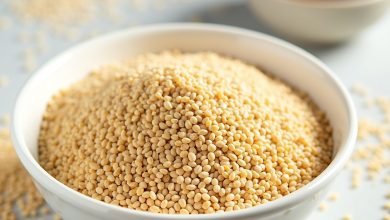Food and Mood: The Surprising Connection You Should Know

When we think of food, our minds often jump to nutrition, taste, or even cultural significance. However, an emerging area of research highlights a different aspect: the profound connection between food and mood. Understanding this link can empower us to make healthier choices that not only nourish our bodies but also uplift our spirits. In this article, we will explore how what we eat influences our emotional well-being and offer practical tips to harness this connection.
The Science Behind Food and Mood
Research has shown that the foods we consume can significantly impact our mental health. The brain requires a variety of nutrients to function optimally, and deficiencies can lead to mood disorders. For instance, omega-3 fatty acids, found in fish, have been linked to lower levels of depression, while vitamins B6, B12, and folate are crucial for neurotransmitter synthesis, which regulates mood.
Gut-Brain Connection
One of the most fascinating aspects of the food-mood relationship is the gut-brain axis. Our digestive system houses trillions of bacteria, known as the gut microbiome, which play a crucial role in our emotional health. A balanced gut microbiome can produce neurotransmitters such as serotonin, often referred to as the ‘feel-good’ chemical. A diet rich in fiber, prebiotics, and probiotics can promote a healthy gut, leading to improved mood and reduced anxiety.
Foods That Boost Your Mood
To harness the power of food for better mental health, consider incorporating the following mood-boosting foods into your diet:
- Fatty Fish: Rich in omega-3 fatty acids, fish like salmon and sardines can help alleviate symptoms of depression.
- Leafy Greens: Spinach and kale are high in folate, which helps in the production of dopamine, a neurotransmitter that enhances mood.
- Nuts and Seeds: These are excellent sources of healthy fats and magnesium, which can help reduce anxiety.
- Fermented Foods: Yogurt, kimchi, and sauerkraut are packed with probiotics that support gut health and may improve mood.
- Dark Chocolate: Rich in antioxidants, dark chocolate can stimulate the production of endorphins and boost mood.
Foods to Limit
Just as some foods can enhance our mood, others can have the opposite effect. It’s wise to limit the intake of:
- Processed Foods: High in sugar and unhealthy fats, these can lead to mood swings and fatigue.
- Refined Carbohydrates: Foods like white bread and pastries can cause spikes in blood sugar, leading to irritability.
- Excess Caffeine: While moderate caffeine can boost energy, too much can lead to anxiety and disrupt sleep patterns.
Mindful Eating for Emotional Well-being
In addition to choosing the right foods, practicing mindful eating can enhance the food-mood connection. This involves paying attention to what you eat and how it makes you feel, both physically and emotionally. Here are a few tips to eat mindfully:
- Savor Your Meals: Take time to enjoy the flavors and textures of your food.
- Avoid Distractions: Try to eat without the distraction of screens or other activities.
- Listen to Your Body: Pay attention to hunger and fullness cues to avoid overeating.
Conclusion
The connection between food and mood is a vital area of understanding that can lead to healthier lifestyle choices and improved emotional wellness. By selecting nutrient-rich foods, being mindful about what and how we eat, and recognizing the impact of our diet on our mental health, we can pave the way for a happier, more balanced life. So the next time you reach for a snack, consider not just how it will fuel your body but how it might uplift your spirit.




